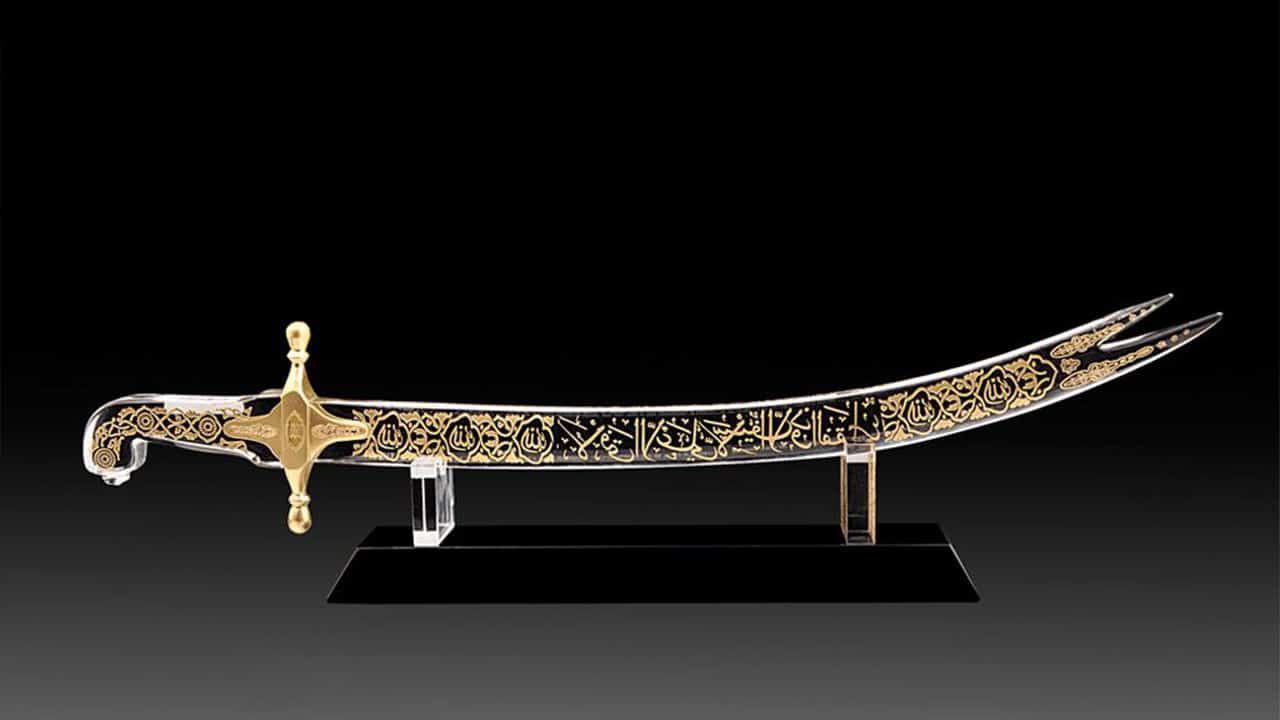
Who was Zulfiqar Ali Bhutto? Zulfiqar Ali Bhutto was a prominent Pakistani politician who served as both President and Prime Minister of Pakistan. Born in 1928, he founded the Pakistan People's Party (PPP) in 1967, which became a major political force. Bhutto is known for his charismatic leadership and significant contributions to Pakistan's political landscape. He played a crucial role in the 1971 Indo-Pak war and the subsequent creation of Bangladesh. His policies focused on social reforms, nationalization of key industries, and strengthening Pakistan's nuclear program. However, his tenure was also marked by controversy and political turmoil, leading to his ousting and eventual execution in 1979. Bhutto's legacy remains influential in Pakistani politics, with his family continuing to play a significant role.
The Legendary Sword of Zulfiqar
Zulfiqar, a name that echoes through the annals of history, is not just a sword but a symbol of valor and justice. This legendary weapon has been the subject of many tales and myths. Let's dive into some fascinating facts about Zulfiqar.
-
Zulfiqar is famously known as the sword of Ali ibn Abi Talib, the cousin and son-in-law of Prophet Muhammad.
-
The sword is often depicted with a bifurcated blade, resembling a pair of scissors, symbolizing its unique design.
-
Ali received Zulfiqar during the Battle of Uhud, where Prophet Muhammad handed it to him, saying, "There is no sword but Zulfiqar, and there is no hero but Ali."
-
The name Zulfiqar is derived from the Arabic word "Dhu al-Fiqar," which means "the one with the spine" or "the one with the notches."
-
Zulfiqar is considered a symbol of justice and bravery in Islamic culture.
Historical Significance
The historical significance of Zulfiqar goes beyond its physical form. It represents a legacy of courage and righteousness.
-
Ali used Zulfiqar in several key battles, including the Battle of the Trench and the Battle of Khaybar.
-
The sword is believed to have supernatural powers, making Ali invincible in battle.
-
Zulfiqar is often mentioned in Islamic literature and poetry, highlighting its importance in Muslim heritage.
-
The sword is a prominent symbol in Shia Islam, representing the strength and leadership of Ali.
-
Zulfiqar has inspired many artworks, including paintings, sculptures, and calligraphy.
Cultural Impact
Zulfiqar's influence extends into various aspects of culture, from literature to modern media.
-
Zulfiqar is frequently referenced in Persian and Arabic literature, symbolizing heroism and justice.
-
The sword has appeared in numerous films and TV shows, often portrayed as a mystical weapon.
-
Zulfiqar is a popular motif in Islamic art, often depicted in mosques and religious texts.
-
The image of Zulfiqar is used in various emblems and flags, especially in Shia communities.
-
Zulfiqar has inspired many modern-day replicas and collectibles, cherished by history enthusiasts.
Symbolism and Mythology
The myths and symbols associated with Zulfiqar add to its legendary status.
-
Zulfiqar is believed to have been forged from a meteorite, giving it otherworldly strength.
-
The sword is said to have the power to distinguish between truth and falsehood, making it a symbol of divine justice.
-
Zulfiqar is often depicted with inscriptions praising Ali and his bravery.
-
The sword is considered a talisman, believed to bring protection and victory to its bearer.
-
Zulfiqar is sometimes associated with the angel Gabriel, who is said to have brought it from heaven.
Modern-Day Relevance
Even today, Zulfiqar continues to hold a special place in the hearts of many.
-
Zulfiqar is a common name for boys in Muslim communities, symbolizing strength and honor.
-
The sword is a popular subject in academic research, with scholars studying its historical and cultural impact.
-
Zulfiqar is often used in political rhetoric, symbolizing resistance and justice.
-
The image of Zulfiqar is used in various logos and insignias, representing power and authority.
-
Zulfiqar has inspired many modern-day martial artists, who see it as a symbol of mastery and skill.
Lesser-Known Facts
Here are some lesser-known but equally intriguing facts about Zulfiqar.
-
Zulfiqar is believed to have been passed down through generations of Ali's descendants.
-
The sword is said to have been lost and rediscovered multiple times throughout history.
-
Zulfiqar has been the subject of many legends, including stories of it glowing in the dark.
-
Some believe that Zulfiqar will reappear during the end times, wielded by a messianic figure.
-
Zulfiqar remains a symbol of hope and resilience, inspiring people across the world.
Final Thoughts on Zulfiqar
Zulfiqar's story is a blend of history, myth, and legend. From its origins in Islamic tradition to its symbolic significance, this sword has captured the imagination of many. Whether you're a history buff, a mythology enthusiast, or just curious, Zulfiqar offers a fascinating glimpse into the past. Its association with Ali ibn Abi Talib and its depictions in art and literature make it a compelling subject. Understanding Zulfiqar helps us appreciate the richness of Islamic culture and the stories that have shaped it. So next time you come across a reference to Zulfiqar, you'll know there's a lot more to this iconic sword than meets the eye. Keep exploring, keep questioning, and keep learning.
Was this page helpful?
Our commitment to delivering trustworthy and engaging content is at the heart of what we do. Each fact on our site is contributed by real users like you, bringing a wealth of diverse insights and information. To ensure the highest standards of accuracy and reliability, our dedicated editors meticulously review each submission. This process guarantees that the facts we share are not only fascinating but also credible. Trust in our commitment to quality and authenticity as you explore and learn with us.
